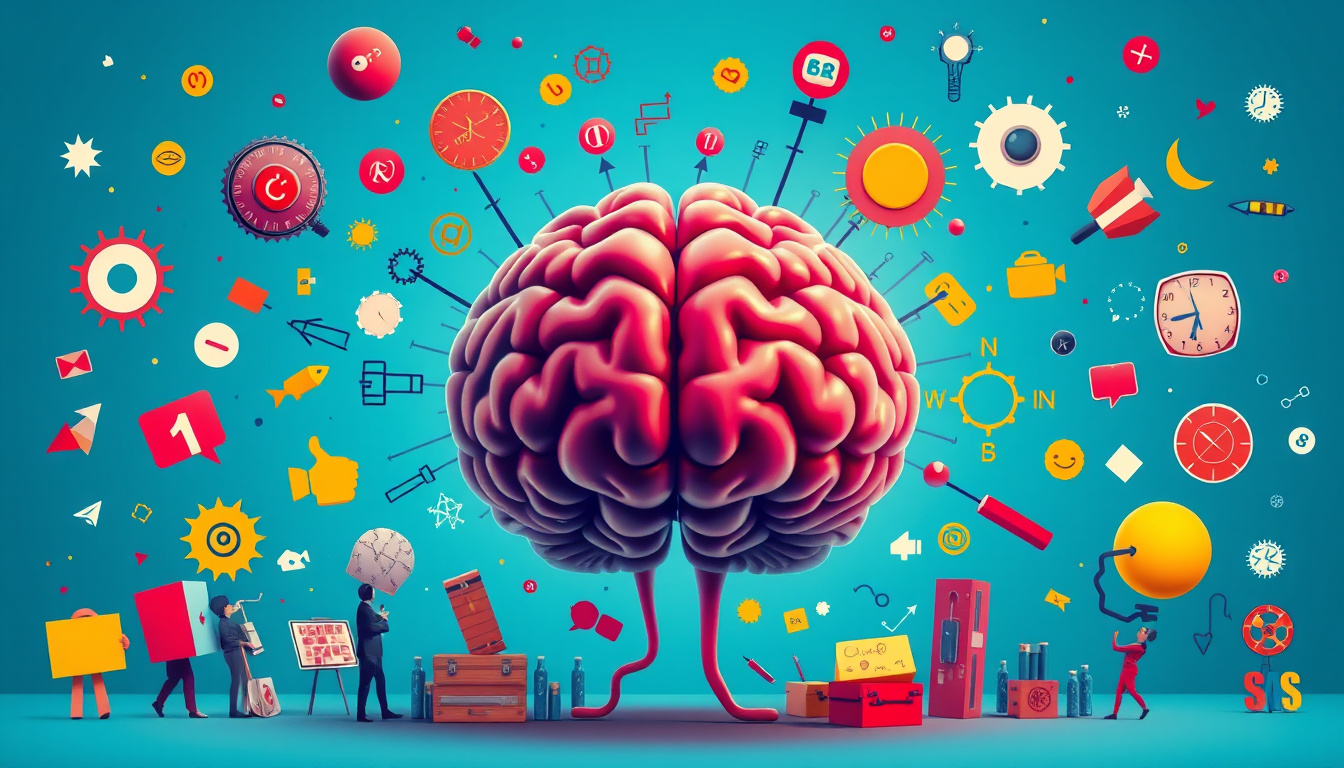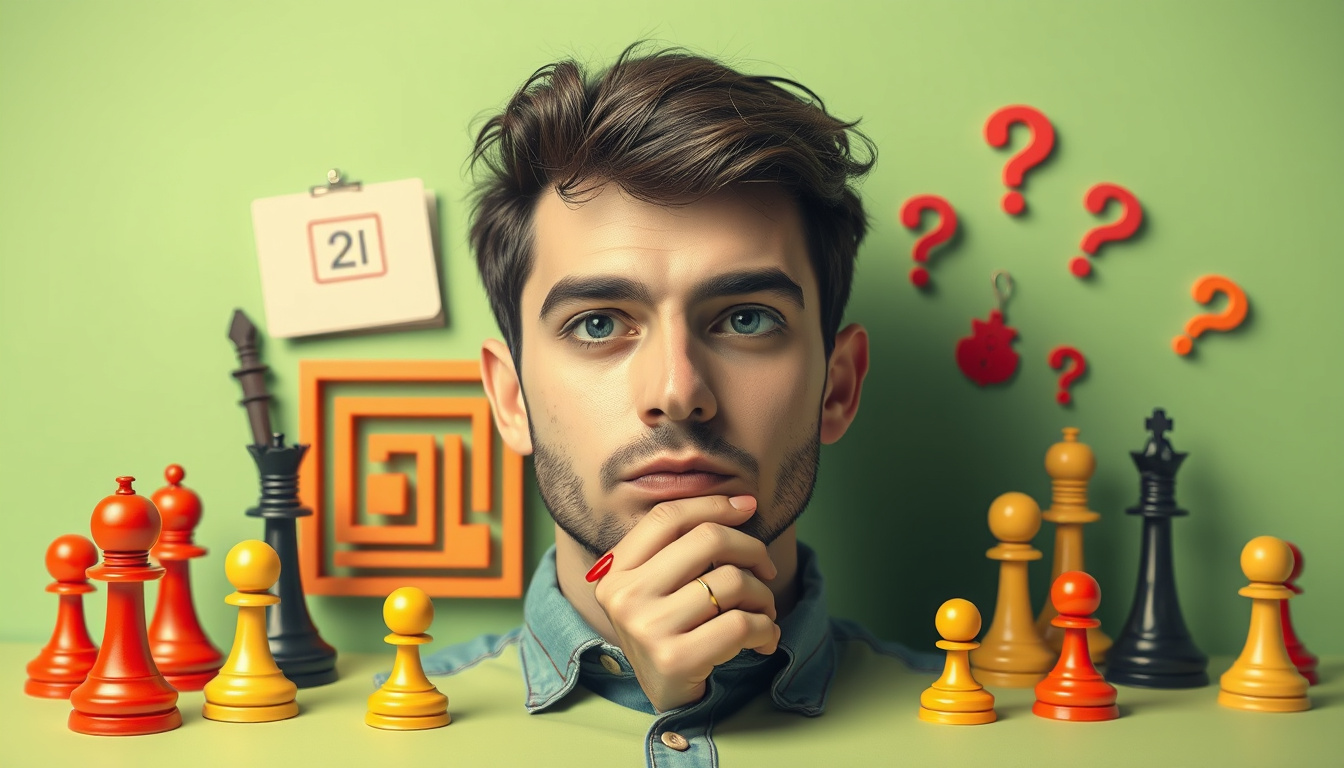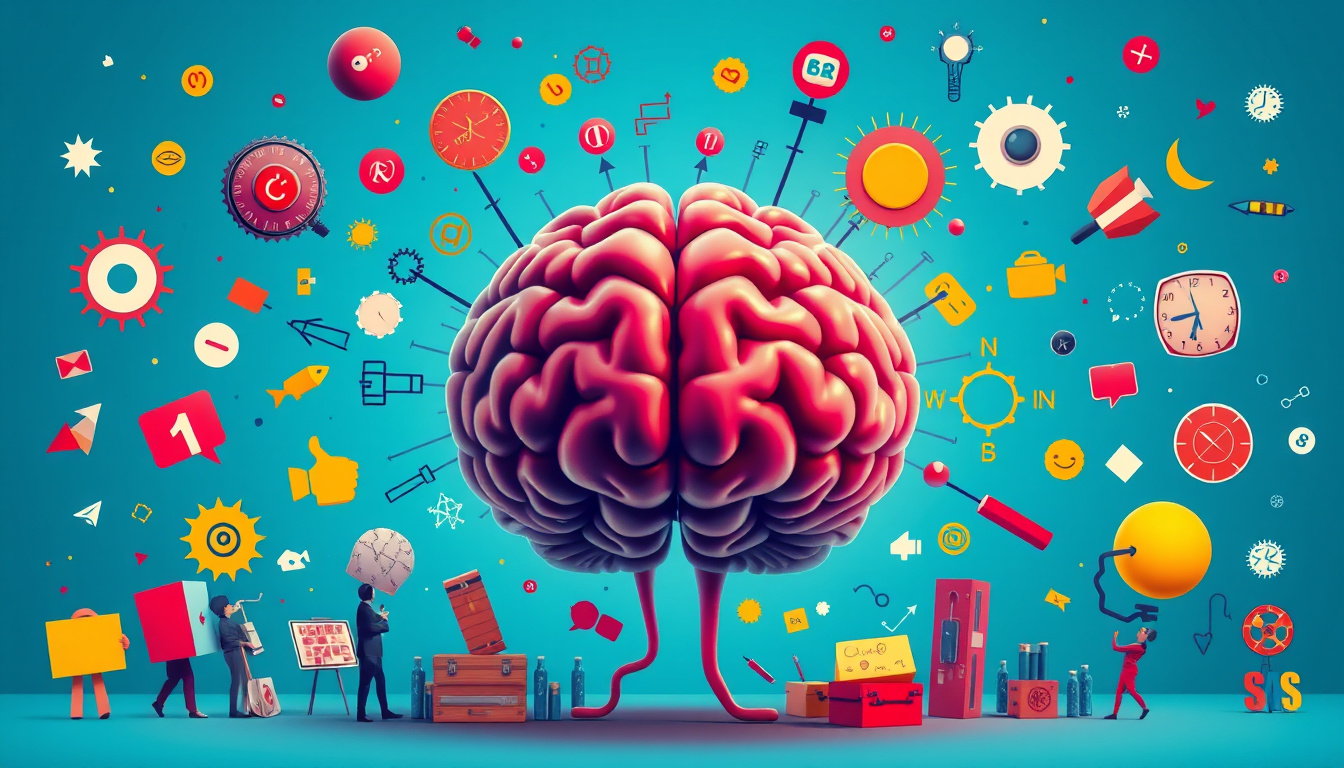Every day, we’re faced with countless decisions, from minor choices like what to eat for breakfast to major ones involving our careers and relationships. Yet, despite our best efforts to make rational decisions, we often find ourselves veering off course and making choices that seem, at best, questionable. This phenomenon raises an interesting question: why does our brain love bad decisions? In this article, we’ll delve into the science of cognitive bias, exploring how our minds can lead us astray. We’ll understand the mechanisms behind cognitive biases, the emotional influences at play in our decision-making processes, and how social factors can further complicate our choices. Ultimately, we’ll arm you with effective strategies to mitigate the impact of these biases, ensuring that you not only understand why your brain might favor poor decisions but also how to make better ones moving forward.

Key Takeaways
- Cognitive bias significantly influences our decision-making processes, often leading us to make irrational choices.
- Emotions play a crucial role in decision-making, sometimes overriding logical reasoning.
- Common cognitive biases, such as confirmation bias and availability heuristic, can result in poor decision outcomes.
- Social influences and the opinions of others can sway our choices, often encouraging bad decisions.
- Implementing strategies like critical thinking and awareness of biases can help mitigate the effects of bad decision-making.
Understanding Cognitive Bias: An Overview
Cognitive bias is a fascinating psychological phenomenon that influences the way we think and make decisions, often leading us to choose poorly without even realizing it. Understanding cognitive bias is crucial, as it helps explain ‘Why Your Brain Loves Bad Decisions: The Science of Cognitive Bias.’ At its core, cognitive bias refers to the systematic patterns of deviation from norm or rationality in judgment. When faced with choices, our brains are wired to rely on mental shortcuts known as heuristics, which can simplify complex decision-making processes. However, these shortcuts can also lead us astray, resulting in choices that may not be in our best interest. This misalignment between our reasoning and the optimal decision can stem from various types of biases, such as confirmation bias, anchoring, or the availability heuristic. Recognizing these biases not only enhances our ability to make more informed decisions but also empowers us to reflect on our thought processes, potentially steering us away from the bad decisions that our brains seem to favor.
The Role of Emotion in Decision-Making
Understanding the role of emotion in decision-making is crucial to unraveling why your brain loves bad decisions: the science of cognitive bias. Decision-making is often viewed as a logical process, but the reality is far more complex. Emotions heavily influence our choices, often leading us to irrational conclusions. For instance, cognitive biases like confirmation bias or the availability heuristic demonstrate how our feelings can skew our perception of information. When faced with uncertainty, our brains may favor bad decisions that align with our pre-existing beliefs or immediate emotions, rather than weighing all evidence impartially. This tendency not only affects personal choices but can also have ramifications in professional settings, underscoring the importance of being aware of these emotional drivers. Acknowledging this emotional impact is the first step towards mitigating bias and fostering more rational decision-making.
‘The greatest problem in communication is the illusion that it has been accomplished.’ – George Bernard Shaw

Common Cognitive Biases That Lead to Poor Choices
Understanding the intricacies of human decision-making can reveal why so many of us fall prey to poor choices, a phenomenon that often perplexes even the most rational thinkers. The answer lies in cognitive biases—systematic patterns of deviation from norm or rationality in judgment. When exploring why your brain loves bad decisions, it’s essential to recognize how these biases unconsciously influence our perceptions and actions. For example, confirmation bias affects how we filter information by favoring what supports our preexisting beliefs, leading us to overlook contrary evidence. Similarly, loss aversion plays a significant role; the fear of losing something often outweighs the desire to gain, making us hesitant to take risks, even when potential rewards are significant. Additionally, the anchoring effect can cause individuals to rely too heavily on the first piece of information they encounter, impacting decisions made in various contexts, from financial investments to personal relationships. By understanding these cognitive biases, you can cultivate greater awareness of your decision-making processes and make choices that align more closely with your true objectives.
The Impact of Social Influences on Our Decisions
The way we make decisions is often affected by social influences, which can lead us to choices that we might regret later. This phenomenon ties closely into the concept of cognitive bias, with the compelling question of ‘Why Your Brain Loves Bad Decisions: The Science of Cognitive Bias.’ Cognitive biases are shortcuts in our thinking processes that affect our judgments and decision-making. They are shaped by our experiences, environment, and social interactions. When surrounded by peers or societal messages that glorify certain behaviors, we may unconsciously adopt these perspectives, often leading us away from rational thinking. For example, the bandwagon effect may prompt individuals to follow popular trends, even when they conflict with their values or interests. Recognizing these biases is crucial for developing better decision-making strategies and becoming more aware of how external factors can skew our perceptions. By understanding the science behind these influences, we can learn to question our instincts and make more informed choices.

Strategies to Mitigate Bad Decision-Making
Decision-making is a complex cognitive process that is often influenced by a variety of factors, including emotional responses and cognitive biases. When exploring why your brain loves bad decisions, it becomes crucial to understand the science of cognitive bias. Cognitive biases are systematic patterns of deviation from norm or rationality in judgment, which can lead to illogical or flawed decisions. Strategies to mitigate bad decision-making involve recognizing these biases, developing self-awareness, and employing critical thinking techniques. One effective strategy is the practice of ‘think-pair-share,’ where individuals articulate their thoughts before discussing them with peers, helping to illuminate biases that may cloud judgment. Another approach is to establish a decision-making framework that includes defined criteria and a checklist, reducing the influence of impulsive, biased thinking. Additionally, seeking diverse perspectives can counteract groupthink, a well-known cognitive bias that often results in poor decision outcomes. By incorporating these strategies and understanding why your brain might lean towards bad decisions, you can enhance your decision-making skills and ultimately make better choices.
Frequently Asked Questions
What is cognitive bias?
Cognitive bias refers to systematic patterns of deviation from norm or rationality in judgment, leading to illogical inferences or decisions often influenced by emotions and social contexts.
How do emotions affect our decision-making process?
Emotions can significantly impact decision-making by creating biases that skew our perception, often leading us to make choices based on feelings rather than objective reasoning.
What are some common cognitive biases that lead to poor choices?
Common cognitive biases include confirmation bias, overconfidence bias, loss aversion, and anchoring bias, which can all result in suboptimal decisions.
How do social influences contribute to the decisions we make?
Social influences, such as peer pressure, cultural norms, and the opinions of others, can lead us to make decisions that align with group expectations rather than our personal beliefs.
What strategies can help mitigate bad decision-making?
Strategies to mitigate bad decision-making include increasing awareness of cognitive biases, seeking diverse perspectives, employing critical thinking, and reflecting on past decisions.
